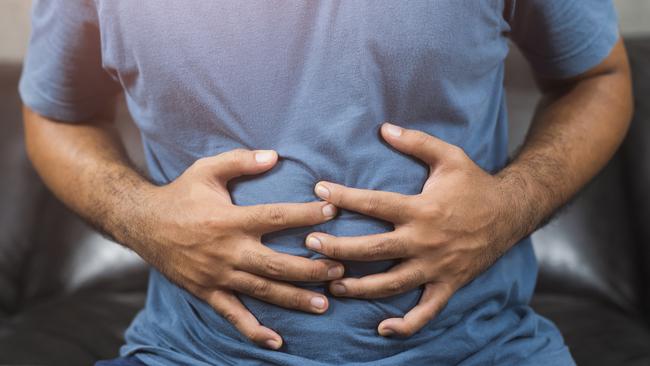Positive interim results for Tryptamine’s trial of oral psilocybin to treat IBS
Tryptamine reports positive interim analysis for its phase 2a clinical study of oral psilocybin formula TRP-8802 in patients with IBS.

Four of up to 10 patients successfully administered with Tryptamine’s oral psilocybin formula TRP-8802 in phase 2a trial to treat IBS
Trial held at Massachusetts General Hospital, marking first time the health facility has administered psilocybin in a clinical setting
Interim results show 75% of patients dosed achieved a reduction in abdominal pain and GI-associated anxiety
Special Report: Tryptamine Therapeutics continues its strong end to 2024, reporting positive interim analysis for its phase 2a clinical study of oral psilocybin formula TRP-8802 in patients with IBS, being undertaken at Massachusetts General Hospital.
Clinical-stage biotechTryptamine Therapeutics (ASX:TYP) said to date four of up to 10 patients have successfully been administered TRP-8802, with the trial marking the first time the leading US health facility has administered psilocybin in a clinical setting.
Massachusetts General Hospital (MGH) is the original and largest teaching hospital of Harvard Medical School.
Tryptamine said the phase 2a study was evaluating the safety and efficacy of TRP-8802 in conjunction with therapist support, based on clinical rationale involving the ‘gut-brain axis’, which primarily includes the neurotransmitter serotonin.
The study is assessing the capacity for psilocin – the active metabolite of psilocybin – to bind to serotonin receptors (5HT-2A) in the brain and the gastrointestinal (GI) system, potentially resulting in a viable pathway to positively impact abdominal pain and visceral tenderness, symptoms of irritable bowel syndrome (IBS).
Tryptamine said preliminary results demonstrated that 75% of the patients dosed achieved a reduction in abdominal pain and GI-associated anxiety.
For those patients with pre-existing anxiety or depression, there were also positive trends in improvement, which the company said highlights the potential for IBS as a viable indication for treatment with its lead candidate TRP-8803.
Tryptamine emphasised TRP-8803 is a scalable psilocin-based IV-infusion formulation with potential neuroplastic benefits.
Broader clinical US program
The phase 2a study at MGH forms part of Tryptamine’s broader US-based clinical development pipeline.
The company has also completed a phase 2a study, in collaboration with the University of Florida, to assess the application of TRP-8802 to treat binge eating disorder (BED).
Strong initial results from the BED trial included an average reduction in binge eating episodes of over 80% in patients compared with baseline, along with reductions in anxiety and depression and a durability of effect up to 60 days.
Its clinical pipeline for TRP-8802 has also included a phase 2a trial with the University of Michigan into fibromyalgia, which highlighted clinically meaningful improvements in pain reduction in 100% of patients.
Data to advance psilocin-based IV-infusion formulation
Along with the potential to achieve improved patient health outcomes, results from the phase 2a trials with TRP-8802 will provide the company with proprietary data to advance the clinical development pathway for TRP-8803.
The company said positive preliminary results from the phase 2a IBS study for TRP-8802 will be incorporated into the clinical design program for TRP-8803, including its application for patients suffering from IBS symptoms.
Tryptamine recently reported that a phase 1b trial for TRP-8803 had successfully met all key objectives including safety and optimal dosing rates to achieve target psilocin blood levels in healthy subjects, enabling advancement to phase 2 clinical trials
An extension to the phase 1b trial also showed the same key objectives were met for a group of obese subjects.
Tryptamine to focus on psilocin-based IV-infusion formulation
CEO Jason Carroll said the latest positive interim results from the first four patients within the phase 2a trial into IBS at MGH provide another strong indication of the broad potential of the company’s product suite to achieve improved patient health outcomes.
“It was exciting to see the interim results reporting a clinically meaningful decrease in abdominal pain and anxiety stemming from IBS symptoms,” he said.
“Looking ahead, this interim analysis highlights that IBS is highly likely to be a viable indication for Tryp to pursue for commercialisation with TRP-8803.
He said while the MGH team would dose the remaining IBS patients, work would start on incorporating the interim results into its expanding proprietary dataset, underpinning the company’s future clinical trial pipeline.
“Tryp’s pipeline will be solely focused on TRP-8803, given the significant competitive advantage we see with TRP-8803 when compared to oral psilocybin,” he said.
This article was developed in collaboration with Tryptamine Therapeutics, a Stockhead advertiser at the time of publishing.
This article does not constitute financial product advice. You should consider obtaining independent advice before making any financial decisions.


